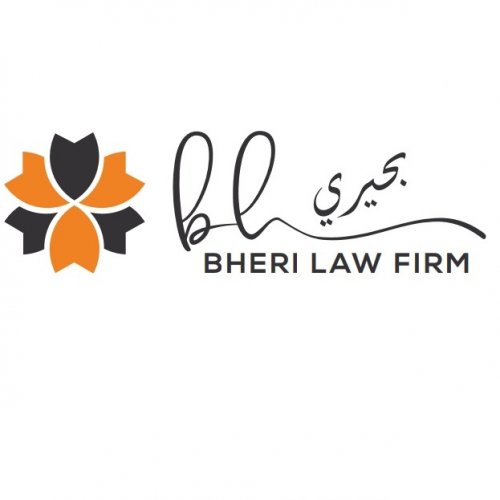Best Education Law Lawyers in Libya
Share your needs with us, get contacted by law firms.
Free. Takes 2 min.
Or refine your search by selecting a city:
List of the best lawyers in Libya
About Education Law in Libya
Education Law in Libya focuses on the regulations and statutes that govern educational institutions, including primary, secondary, and tertiary education. This legal field addresses issues related to school administration, teacher employment, student rights, and educational standards. In Libya, the Ministry of Education is primarily responsible for setting educational policies and ensuring that educational institutions adhere to national standards. The law seeks to ensure access to education for all citizens and supervise the equitable distribution of educational resources across different regions.
Why You May Need a Lawyer
There are several situations where individuals or organizations may require legal help in Education Law in Libya. Some common scenarios include disputes between students and educational institutions regarding expulsions or disciplinary actions, cases of educational discrimination or inequality, issues of accrediting private education providers, contractual disputes involving teacher employment, and the establishment or dissolution of educational institutions. Consulting a lawyer can help resolve these disputes effectively or assist in understanding complex educational regulations and rights.
Local Laws Overview
Education Law in Libya is heavily influenced by legislation set by the government and overseen by the Ministry of Education. Some key aspects of these laws include:
- Access to Education: Ensuring all children receive free and compulsory basic education.
- Standards and Curriculum: Establishing national standards for school curricula that schools must follow.
- Teacher Employment: Guidelines on teacher qualification requirements and employment rights.
- Student Rights: Protecting students against discriminatory practices and ensuring their right to a safe learning environment.
- Private Educational Institutions: Regulation and accreditation processes required for private schools and universities.
Frequently Asked Questions
What are the main educational rights for students in Libya?
Students have the right to free and compulsory basic education, non-discriminatory access to educational institutions, and safe and supportive learning environments.
How are disputes between students and schools typically resolved?
Disputes may be resolved through internal school processes, mediation, or, if necessary, legal action. Consultation with an education lawyer can help determine the best approach.
Are there laws protecting against educational discrimination?
Yes, Libyan laws prohibit discrimination based on gender, religion, ethnicity, or disability in educational settings.
How can I establish a private school in Libya?
Establishing a private school requires compliance with Ministry of Education regulations, including accreditation processes and adherence to curricular standards.
What qualifications are necessary for teaching in Libya?
Teachers must have specific qualifications outlined by the Ministry of Education, including degrees and certifications pertinent to their teaching subjects.
Can foreign educational institutions operate in Libya?
Foreign institutions can operate with appropriate accreditation and adherence to local educational standards and regulations.
What is the process for dealing with teacher employment disputes?
Employment disputes may be addressed through contractual negotiations, mediation, or legal proceedings if necessary.
How is the curriculum determined for schools?
The Ministry of Education sets the curriculum standards, which all schools must follow to ensure consistency in educational quality and content.
Are home-schooling options available under Libyan law?
Home-schooling is not widely recognized or regulated, and students typically must enroll in accredited institutions for basic education.
What supports are in place for students with disabilities?
Libya's education laws include provisions for accommodating students with disabilities, though specific supports may vary depending on the region and institution.
Additional Resources
For additional help, consider reaching out to the following resources:
- Ministry of Education: The primary governing body for educational policy and standards in Libya.
- Local Education Offices: Regional offices can provide specific local regulations and guidance.
- Legal Aid Organizations: These can provide assistance for individuals unable to afford private legal services.
Next Steps
If you need legal assistance in Education Law in Libya, follow these steps:
- Contact an education lawyer who specializes in Libyan law to discuss your specific situation and obtain personalized advice.
- Gather all relevant documents and information related to your issue to provide comprehensive details to your lawyer.
- Consider reaching out to local educational offices or the Ministry of Education for further guidance and information.
- Explore legal aid options if financial constraints limit your access to private legal consultation.
Lawzana helps you find the best lawyers and law firms in Libya through a curated and pre-screened list of qualified legal professionals. Our platform offers rankings and detailed profiles of attorneys and law firms, allowing you to compare based on practice areas, including Education Law, experience, and client feedback.
Each profile includes a description of the firm's areas of practice, client reviews, team members and partners, year of establishment, spoken languages, office locations, contact information, social media presence, and any published articles or resources. Most firms on our platform speak English and are experienced in both local and international legal matters.
Get a quote from top-rated law firms in Libya — quickly, securely, and without unnecessary hassle.
Disclaimer:
The information provided on this page is for general informational purposes only and does not constitute legal advice. While we strive to ensure the accuracy and relevance of the content, legal information may change over time, and interpretations of the law can vary. You should always consult with a qualified legal professional for advice specific to your situation.
We disclaim all liability for actions taken or not taken based on the content of this page. If you believe any information is incorrect or outdated, please contact us, and we will review and update it where appropriate.
Browse education law law firms by city in Libya
Refine your search by selecting a city.









